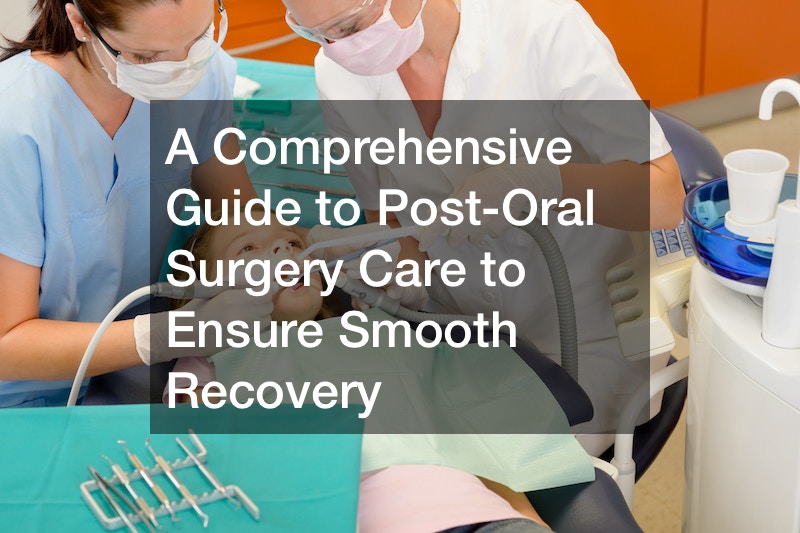
Undergoing oral surgery, whether it’s a dental implant, tooth extraction, or gum surgery, can be a significant step toward improving your oral health. However, the key to a successful outcome lies in proper postoperative care. In this article, we will delve into essential post-oral surgery care tips to ensure a smooth recovery.
Pain Management:
Managing pain is a crucial aspect of post-oral surgery care. After the numbing or anesthesia wears off, discomfort is inevitable.
While your oral surgeon may prescribe ibuprofen, Tylenol, or a combination of both before the procedure, it’s important to stay ahead of any pain. A recommended approach is to take 600 milligrams of ibuprofen and 500 milligrams of acetaminophen every six hours for the first three days. This combination effectively addresses both swelling and pain. Additionally, consider incorporating caffeine into your routine, as it enhances the efficacy of pain medications.
Sutures/Stitches:
Depending on the nature of the surgery, you might have stitches. It’s essential to be mindful of these stitches to promote optimal healing. Avoid playing with or disturbing the stitches with your tongue. If stitches become loose, it’s not a true emergency, but it’s advisable to either remove the loose ones or trim them to prevent constant pulling during activities like chewing. Maintaining the integrity of stitches contributes significantly to the positive outcome of the surgery.
Bleeding:
A little bleeding after oral surgery is normal. However, if the bleeding appears excessive, immediate action is necessary. Use gauze to apply firm pressure on the bleeding site for 30 minutes. It’s crucial not to peek at the site frequently, as doing so can disrupt the clotting process. If bleeding persists, a damp tea bag with tannic acid can be applied to help constrict blood vessels and stop bleeding. Persistent bleeding beyond these measures should prompt a call to your oral surgeon.
Home Care:
Diet plays a crucial role in the postoperative period. For the first five days, stick to a soft, mushy diet to avoid traumatizing the surgical area. Mashed potatoes, yogurt, ice cream, and steamed vegetables are suitable choices. After this initial period, gradually transition to soft foods like rice, pasta, fish, and meats. It’s important to refrain from spicy or hot foods, and maintain lukewarm temperatures for soups to prevent irritation.
Maintaining oral hygiene is crucial for a successful recovery. Rather than using a toothbrush directly on the surgical area, opt for a recommended mouth rinse, with Listerine being a popular choice. This antimicrobial mouthwash aids in preventing infections without causing trauma to the healing site. Strenuous activities and heavy lifting should be avoided in the first three days, while smoking is strongly discouraged for at least the initial three days, with longer abstinence being even more beneficial for healing.
Conclusion:
In conclusion, post-oral surgery care is pivotal for a successful recovery. Following the guidelines provided by your oral surgeon, such as the pain management regimen, proper care of stitches, handling bleeding, and adhering to dietary restrictions, will significantly contribute to the healing process. Remember that if you encounter any concerns or unusual symptoms, contacting your oral surgeon promptly is crucial for timely intervention. By following these comprehensive post-surgery care tips, you can ensure a smooth and successful recovery after your oral surgery.
.




